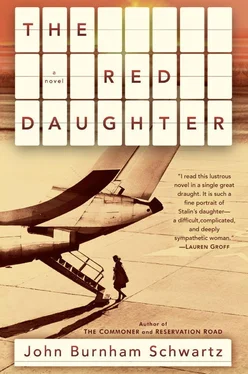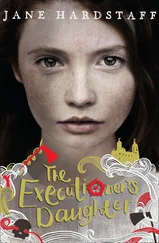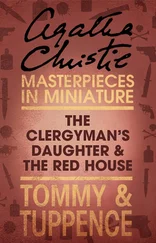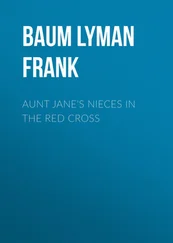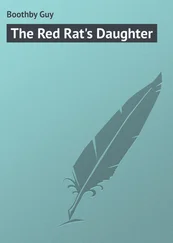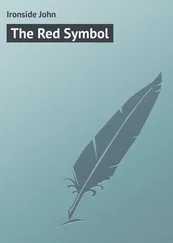John Schwartz - The Red Daughter
Здесь есть возможность читать онлайн «John Schwartz - The Red Daughter» весь текст электронной книги совершенно бесплатно (целиком полную версию без сокращений). В некоторых случаях можно слушать аудио, скачать через торрент в формате fb2 и присутствует краткое содержание. Город: New York, Год выпуска: 2019, ISBN: 2019, Издательство: Random House, Жанр: Историческая проза, на английском языке. Описание произведения, (предисловие) а так же отзывы посетителей доступны на портале библиотеки ЛибКат.
- Название:The Red Daughter
- Автор:
- Издательство:Random House
- Жанр:
- Год:2019
- Город:New York
- ISBN:978-1-40006-846-3
- Рейтинг книги:4 / 5. Голосов: 1
-
Избранное:Добавить в избранное
- Отзывы:
-
Ваша оценка:
- 80
- 1
- 2
- 3
- 4
- 5
The Red Daughter: краткое содержание, описание и аннотация
Предлагаем к чтению аннотацию, описание, краткое содержание или предисловие (зависит от того, что написал сам автор книги «The Red Daughter»). Если вы не нашли необходимую информацию о книге — напишите в комментариях, мы постараемся отыскать её.
The Red Daughter — читать онлайн бесплатно полную книгу (весь текст) целиком
Ниже представлен текст книги, разбитый по страницам. Система сохранения места последней прочитанной страницы, позволяет с удобством читать онлайн бесплатно книгу «The Red Daughter», без необходимости каждый раз заново искать на чём Вы остановились. Поставьте закладку, и сможете в любой момент перейти на страницу, на которой закончили чтение.
Интервал:
Закладка:
He drops the ruined creature on the rocks, crushing and smearing it under his boot. Sucking blood from his fingers, he turns and walks away, knowing I will follow.
Perched like a squat little doll on the lap of Lavrentiy Beria, newly elected member of the Central Committee of the Communist Party of the Soviet Union and known to be the vozhd ’s most trusted subordinate, I watch my father swallow an oyster with one deft scoop of his strong blunt hand. How like a shark he feeds himself carelessly, never tasting the food, his attention darkly riveted by papers and charts spread over the round stone table on the terrace outside his summer dacha. Of course, it doesn’t occur to me that these must be food production numbers: thousands, millions, starving to death in the countryside, though no one dares speak or write of it.
My father’s face is a fist. Without looking, he tosses the empty shell back on the ice-covered tray.
And now, from behind me, Beria’s hand emerges: the lithe manicured fingers of a knife artist. His arm brushes my ribs, then retracts holding a plump, glistening oyster on its shell—someone’s stolen gray tongue. I listen to it being slurped down inches from my ear, smelling the seawater in which it lived, mixed now with the sickening taint of Beria’s breath. The sunlight reflecting off his pince-nez. The cunning smack of his lips practically inside my head.
A starving man is no threat, he observes to the vozhd, the oysters already decomposing in their stomachs. And my father in his simple peasant tunic doesn’t bother to contradict him, says nothing. Closed for business. With a twitch of nervous satisfaction, Beria lights a cigarette.
I am being taught to swim by a military instructor. My father observing me from the rocky beach, Beria a human tuning fork beside him. Out in the water the instructor’s strong hands let me go: I begin to sink, mouth and throat filling with liquid salt, which is the drowning taste—I know this even then—of the black sea of my mother’s absence.
Swim, Housekeeper, swim! That’s an order! My father walks away, not waiting to see whether or not I will obey him and live. It’s half-amusing to him, this idea of his giving me, his bossy little Housekeeper, an order. Beria, meanwhile, round lenses of his pince-nez silvered like coins in the sunlight, never cracks a smile. He lingers behind a few moments, hoping to see my arms flail and my legs thrash and my head go under once more. But I refuse to give him that pleasure. I will swim, or I will die.
Bravo, calls the snake in his snake’s voice when I finally crawl and gasp my way onto the shore.
He makes sure to say it loud enough for the vozhd to hear. Unfortunately for him, no one is listening.
As the vozhd’ s only daughter and Little Hostess, she who (at that time, anyway, and aided by that doll-master of perfection Lyolka) could do no wrong, I was to a large extent removed from direct experience of my father’s increasingly vindictive temper. My brothers, however, were not so fortunate; you might say that our father’s nose for human frailty was not mere sport, but a form of insatiable hunger. It could hardly be coincidence that Vasily began drinking heavily at the age of thirteen; or that by the age of twenty, in 1941, good-looking, arrogant, thin-skinned, and hysterically insecure, he had become both a raging alcoholic and a colonel in the Red Air Force. I tried never to be alone with him.
But it was Yakov, my Georgian half brother, nineteen years older, gentle and shy, from the first marriage to Kato Svanidze (a dark beauty who died of typhus six months after giving birth), who paid the steepest price. My father would not agree to even meet his firstborn until Yakov was sixteen—and then only because my mother threatened to leave him if he did not exhibit, at minimum, this basic sense of decency. So they brought him into their sphere, if not exactly their home. My mother grew to love her stepson, I believe, and worried about him. But my father would not relent. He bullied the young man with the quiet nature who looked, everyone said, so much like his mother; no opportunity was missed to remark on some perceived failing, some weakness or slowness. When Yakov’s first daughter died in infancy, our father’s silence rang like a personal indictment. And sometime afterward, when Yakov’s despair led him to attempt suicide with one of his father’s pistols, only to flinch at the last moment so that the bullet missed its intended target, that great deep heart, and passed straight through to his other side, leaving him badly wounded but still alive, my father’s contempt knew no bounds. Weakling! he snarled. Look at you! You can’t even shoot like a man!
But eventually Yakov did learn how to shoot, oh yes: he became a soldier. And when war with Germany was declared, he chose to prove himself by volunteering for the front the very next day. Our father’s parting message to him was to publicly declare that his son was to be shown no special treatment of any kind—not on the battlefield or anywhere else.
A month later, Yakov and his unit were captured by the Germans. During the next four years, the enemy made numerous attempts to engage the Supreme Commander of the Soviet Republic in a prisoner-of-war exchange for his son, but Josef Stalin refused every offer.
Reports on the death of Yakov Iosifovich Dzhugashvili (our father’s birth surname, before he began to call himself Stalin) are now, as they were then, impossible to verify. Some vow that he was shot by German camp guards as he attempted to escape from the concentration camp in which he’d spent the last four years. Others swear that one frigid, endless night, mustering whatever reserves of strength he had left, he threw himself against the electrified razor wire surrounding the camp and, hanging there as if crucified, was electrocuted to death before his captors’ bullets could touch him.
The only thing that is absolutely certain is that he never returned.
I once overheard my aunt Anna, my mother’s sister, saying to my uncle Stanislav, through a closed door that I should never have been anywhere near, What about exile?
And he replied, We don’t have exile. We just disappear.
Stanislav was executed in 1940. Eight years later, Anna was arrested. The only thing my father mistrusted more than strangers was family.
The vozhd’ s death, in 1953, finally liberated my aunt, but she was never the same. More and more over the years, she found it threatening to leave her little apartment. Every day she sat in the same chair in the same room and said the same things, her thoughts magnetically sealed inside her imprisonment, which had grown more real to her than her life. It was as if she too had never returned.
But I can’t know any of this yet. It is August 1942, I am sixteen, and my head is filled with my own concerns.
Word comes: I am summoned to dinner at Kuntsevo, the rarest of invitations. Why this evening in particular? I am not told. My nurse, Alexandra Andreevna, insists I wear the longer skirt, the one that falls well below my knee. I am still a schoolgirl, reading all the time, half in love with Mayakovsky and Dostoyevsky and Chekhov. Yet when the summons from my father comes, without so much as a whiff of irony, I put on the longer dress and go.
I enter the room and there is a bald man, round and full-fleshed, wearing formal clothes and smoking a preposterously large cigar, which he holds between the thick second and third fingers of his right hand. The room pungent with his cultured, foreign smoke. And because of the nature of that smoke, though I am still ignorant of the identity of the man producing it, I become aware that for the first time my father has invited me to witness a meeting of the highest diplomatic importance.
Читать дальшеИнтервал:
Закладка:
Похожие книги на «The Red Daughter»
Представляем Вашему вниманию похожие книги на «The Red Daughter» списком для выбора. Мы отобрали схожую по названию и смыслу литературу в надежде предоставить читателям больше вариантов отыскать новые, интересные, ещё непрочитанные произведения.
Обсуждение, отзывы о книге «The Red Daughter» и просто собственные мнения читателей. Оставьте ваши комментарии, напишите, что Вы думаете о произведении, его смысле или главных героях. Укажите что конкретно понравилось, а что нет, и почему Вы так считаете.
